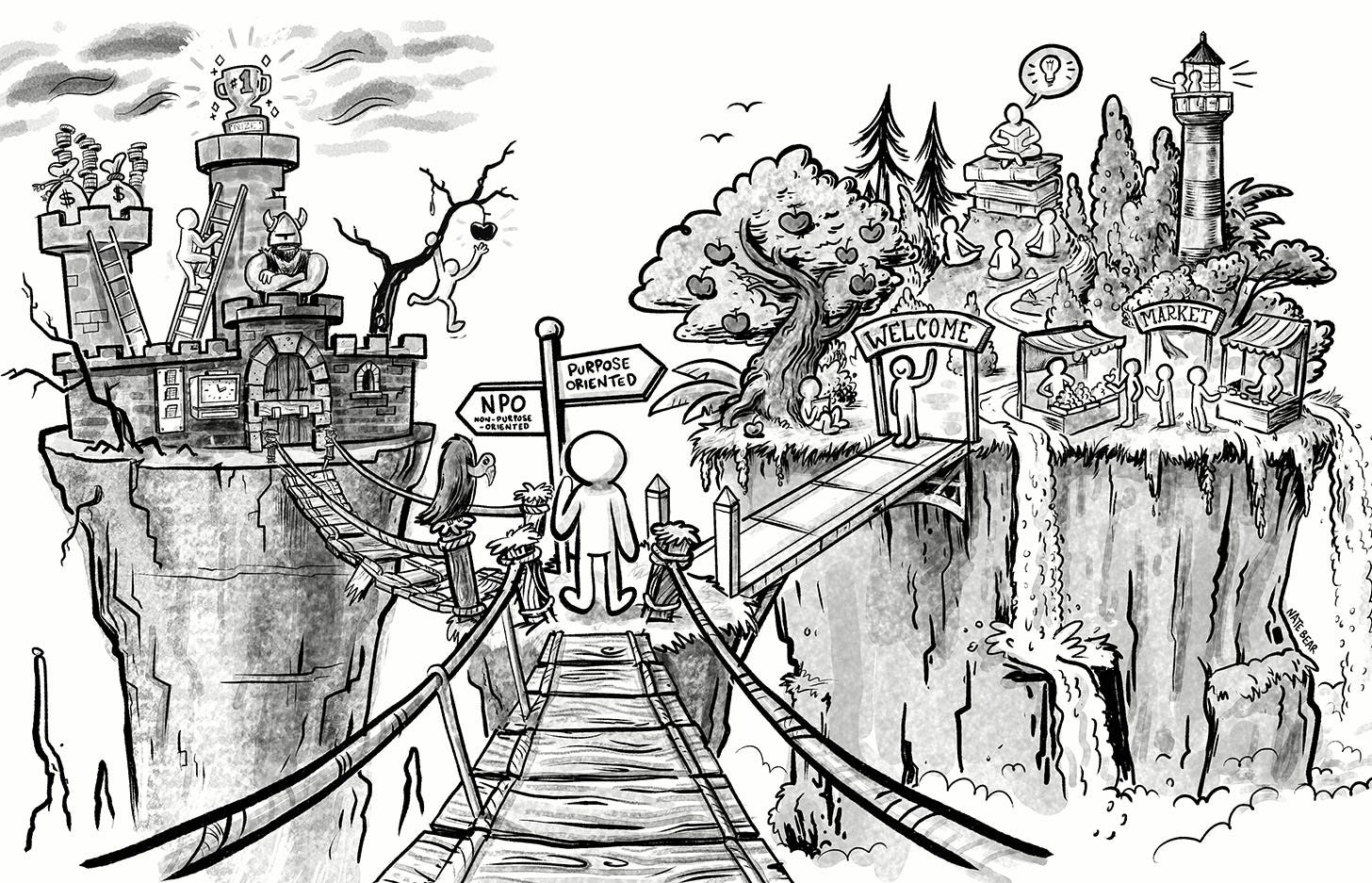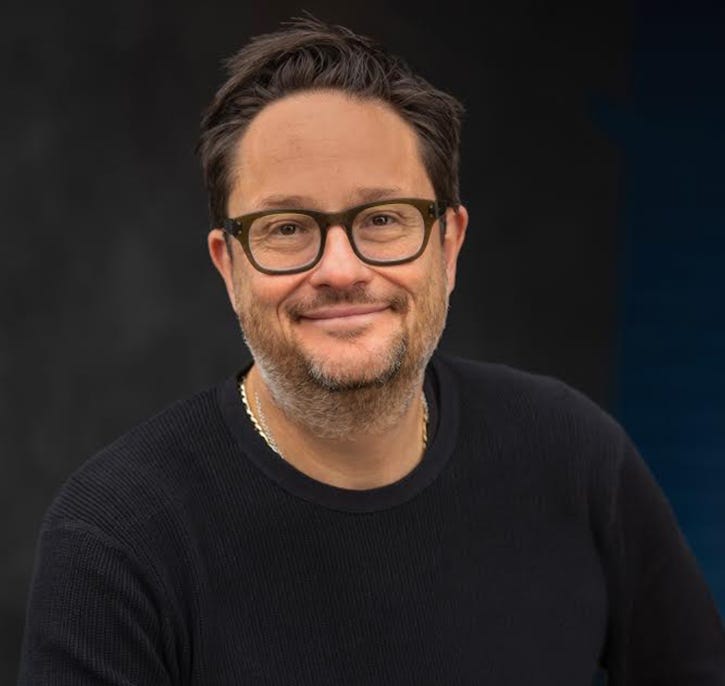“Purpose is about what you’re wired to do that makes your work meaningful. Different people are wired to find different types of work meaningful.”
So begins Aaron Hurst, the master of helping people—and organizations—discover purpose in their jobs. We recently met in Seattle to discuss his own work, our interview held on a park bench overlooking Lake Washington on an extraordinarily beautiful day that one appreciates more for being in the Pacific Northwest.
Purpose is not about happiness, Aaron advises early in our talk. “Happiness is weird, and people put a lot of definitions on it. I think about it as a parent. You’re not always happy as a parent. Sure, there are moments—your kid farts and makes you giggle, they score a goal in soccer, they cuddle with you on the couch while watching a movie. Most of the time though you’re not happy, but it’s fulfilling, right? Think of teaching your child how to ride a bike, all the struggles and crying and falls, but then it feels great when they finally glide down the street. The hard parts are what makes parenting fulfilling, that sense of doing something that matters, caring for and raising a child to navigate the world on their own. For parents, that’s the number one job we all have, and the question is how can you have a job that mirrors that level of fulfillment, and that is the goal of identifying your purpose.
Recently, I read some studies about what is called the hedonic baseline. The basic premise is that we naturally have a certain level of happiness, and everyone’s different. So, you have this baseline. As a Jew, one of the most significant accomplishments in life is getting an Op-ed in the New York Times. That’s a thing.” Aaron laughs. “Years ago, I had my first one published, and I was in Boston, and I drove around the city with my father-in-law handing out copies to friends. I was on cloud nine. A week later, I was like ‘whatever’ and I snapped back to my baseline. The same is true of tragedy. If you’re in prison, once you adjust to your new reality, you come back to your baseline. People who chase happiness are on a treadmill because you always snap back to this level. It’s like the old saying, ‘Wherever you go, there you are.’
Now, the only thing that studies show change your baseline is focusing a lot of your time on altruism and helping others. That creates a sustained increase. That shows you the power of purpose. If you feel like what you’re doing matters and that you’re adding value, then it’s a way to elevate your baseline.”
More important, Aaron makes clear that the world would be a better, more connected, and kinder place if everyone lived and embraced their specific purpose in life.
The obvious question I then ask: if purpose is individual to each of us, how do I know what mine is? That is when Aaron gets going…
.
Aaron Hurst comes from a rather storied family of entrepreneurs and academics. His grandfather Joe Slater conceived the idea of the Peace Corps. His uncle Marc Porat coined the term “Information Economy.” Aaron followed early—and eagerly--in their footsteps.
While at the University of Michigan, he created a program to teach creative writing at local prisons. Upon graduation, he worked at a non-profit in Chicago focused on inner-city education. The work was important, and the level of need was tremendous, but he was frustrated by the inability of his organization to scale to meet that need. “The problems were too big for us to continue handing out checks for teachers to buy materials for their classroom,” Aaron recounts. “That wasn’t changing the issue, and I asked myself how can I actually make a difference that matters, how can we scale nonprofits to have a chance in hell of making a real impact?”
This was the late 1990s, and Aaron decided to join the dot.com boom in Silicon Valley to learn how to build a start-up, then bring those entrepreneurial skills and lessons to the non-profit sector. After five years at two fast-growing early-stage companies, he left his stock grants and soaring salary to do exactly that.
“I started going around talking to non-profit leaders, asking, ‘How can I help you? I know all this business stuff. I’m here to save you like Jesus,’” Aaron chuckles at the memory of his youthful self. “I thought I had so much to offer, but the reality was they didn’t want me…or have a job for me. Instead, they needed someone to help with their website or branding or with technology. That led to one of those chocolate and peanut butter moments where everything just comes together. One, nonprofits need all these services. Two, I knew all these people in business who wanted to get involved in the community but found volunteering to be a waste of time. And I thought, what if I could connect non-profits with what they need, not just raw manpower? It’s crazy to get a marketer who gets paid $200 an hour and you want them to do $8 work. It's not because they're better than that, but you’re economically depriving a non-profit of valuable skills.”
Keep reading with a 7-day free trial
Subscribe to Work/Craft/Life to keep reading this post and get 7 days of free access to the full post archives.



